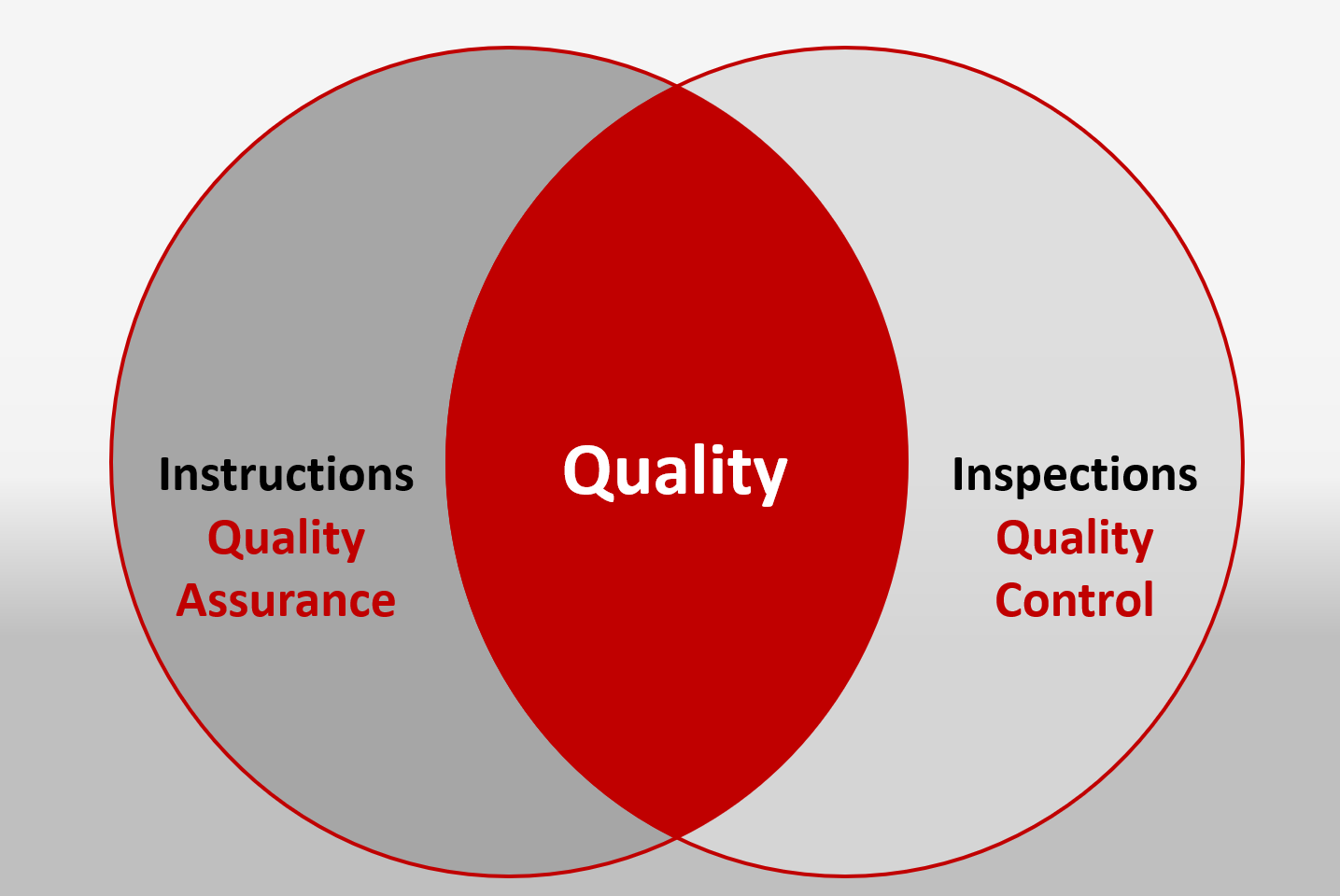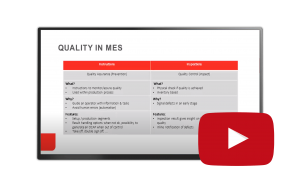Quality management is a vital function of a Manufacturing Execution System (MES). An MES with integrated quality management monitors the production line to identify potential issues, so production delays and errors can be minimized. Manufacturers have stricter quality control requirements, and greater pressures to improve efficiencies and reduce costs. MES-integrated quality management gives these businesses the tools to measure performance, improve product experience for customers, ensure compliance, and more.
Achieving optimal quality management through an MES requires the definition of quality and processes for visibility and accountability. Manufacturers refer to these two goals as instruction and inspection.
Establish quality “rules” with instruction
 Instruction is the process of establishing what quality means for a given process or product. It guides operators, providing the information and tasks to avoid defects in production. With clearly defined instructions, human error is minimized, and the process of determining quality control compliance is simplified.
Instruction is the process of establishing what quality means for a given process or product. It guides operators, providing the information and tasks to avoid defects in production. With clearly defined instructions, human error is minimized, and the process of determining quality control compliance is simplified.
MES quality can also identify events or results that can trigger an Out of Control Action Plan (OCAP). This plan guides employees in situations where processes or output become out of control. Companies can use MES to set alerts and checkpoints for the out of control situation, further minimizing the impact on quality.
Instruction can take place at the setup stage, where initial rules are defined and clarified, or at different production segments.
See what’s really going on, with inspection
While instruction provides guidelines, inspection is how a manufacturer can keep tabs on processes to ensure that the production rules are being followed. Inspections are a key component of quality control, as they provide a physical check to see if quality goals are being achieved. Of course, quality is not only measured at the end-stage of production. With MES, manufacturers can get a clear view of all stages of production. If problems are seen in the early stages, defects can be remedied, significantly reducing disruption and cost.
Objective MES adds the quality features that manufacturers need to meet production goals most efficiently, increasing their competitiveness. Objective allows easy setup of quality instructions and enables quick changes when necessary. From take-off at the setup segment to providing documentation, such as operator instructions, standard operating procedures, and checklist, Objective helps manufacturers create and communicate clear production standards.
In the production segment, manufacturers have tools to measure quality through Objective. And, with the ability to create tasks, such as for take-off and double sign off, manufacturers can add extra measures to ensure quality control procedures are followed.
To learn more about how Objective MES can help your business operationalize quality, contact us for more information.


